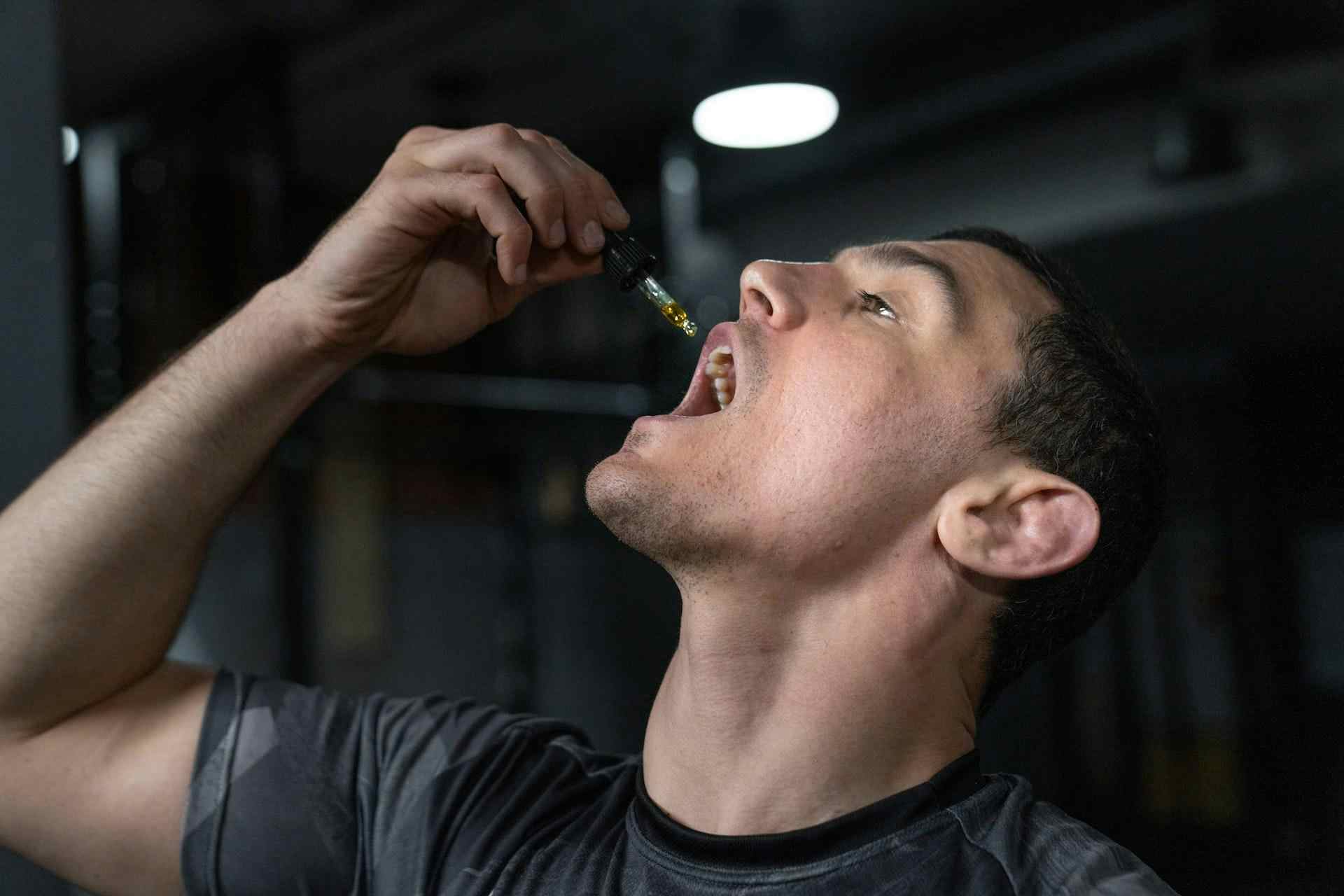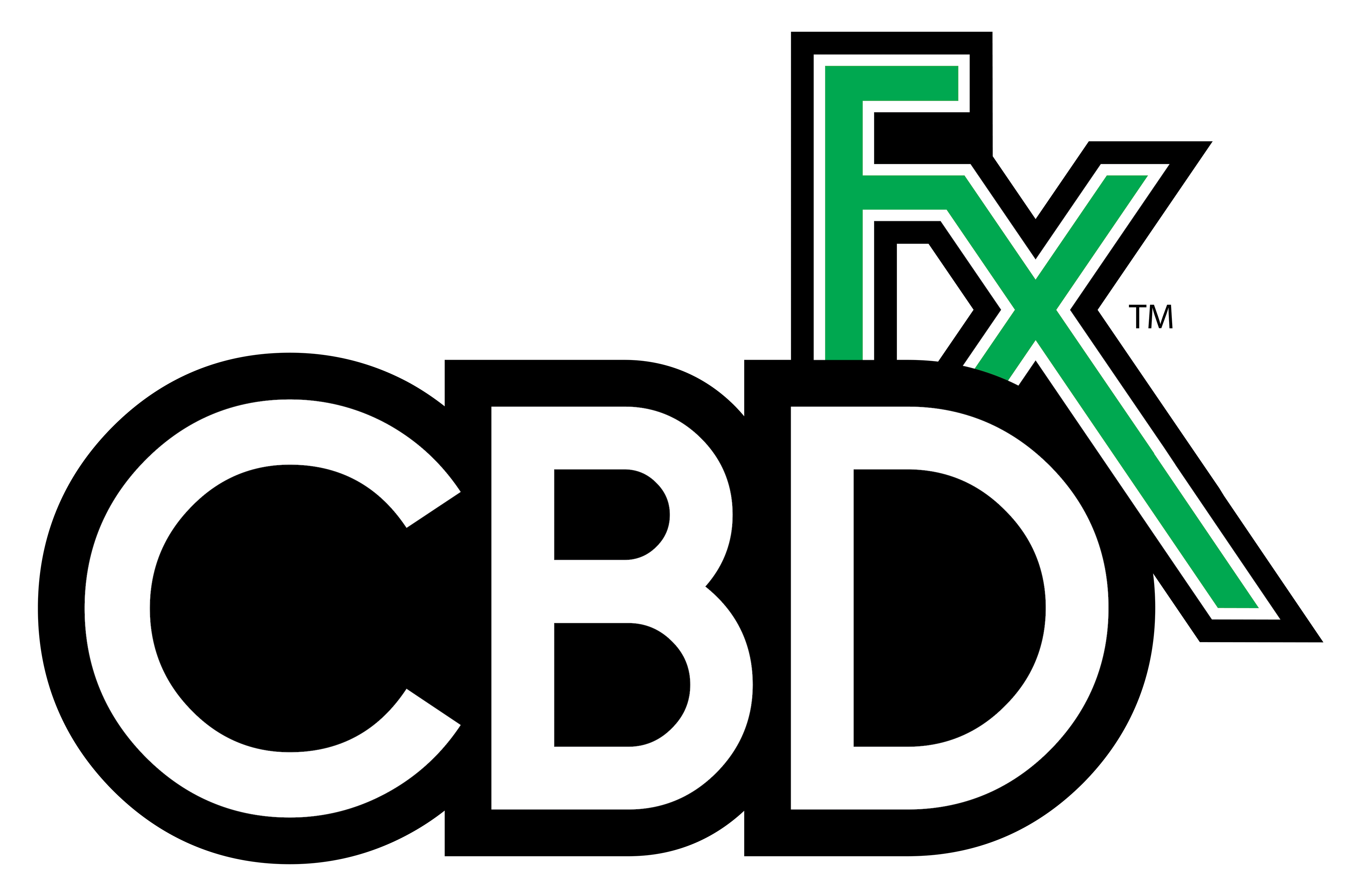CBD oil is one of the latest natural remedies being touted in the health and wellness space. It’s claimed to help with pain management, anxiety, insomnia and more. There are many ways to take this supplement, from tinctures to creams, CBD gummies and soothing balms.
Despite the initial controversy surrounding CBD oil, this natural compound is gaining acceptance as further research becomes available. CBD is the short term for cannabidiol, one of the main compounds found in cannabis. These cannabinoids interact with your body's endocannabinoid system to support the regulation of hormones, brain function, and immune and digestive systems.
CBD can have a quick and positive impact on anxiety, general aches and pains, your sleep patterns, mental performance, and much more! Discover the UK's leading CBD brands and stock up on your CBD essentials today!
Is CBD oil legal?
CBD oil is legal. It's sold as a health supplement across the UK in many health food stores and dedicated CBD shops. Although CBD oil comes from the cannabis plant, CBD imparts health benefits without the 'high' associated with cannabis. It's the other well-known compound from the cannabis plant, THC, that's psychoactive and responsible for the altered state marijuana is famous for.
Many CBD oils have no THC in them at all. Even full-spectrum products containing both CBD and THC only have minuscule amounts of the psychoactive compound. Not nearly enough to induce a high or altered state.
CBD oils and topical products are typically derived from the hemp plant. Hemp has higher amounts of CBD and lower amounts of THC than marijuana. This makes it easier for manufacturers to extract high-quality oil for their products.
Different methods for taking CBD oil
CBD oil is sold as tinctures, sprays, in bottles with droppers and as CBD capsules. Oils can be one of the easiest ways to take CBD. It’s simple to regulate your dose and change the amount of CBD you take as you become familiar with what works for you.
There is no 'right' dose of CBD. Each individual has slightly different needs, and what works for one person may be too much or too little CBD for the next. Therefore, it is recommended that those new to CBD supplements begin with a lower dose and slowly work their way up. This is the best way to find the right amount of CBD for you.
CBD tinctures, sprays and CBD oil drops are taken orally. These can be added to smoothies, a cup of coffee in the morning or taken on their own. The most efficient way to take CBD oil is to drop or spray the CBD oil under your tongue. Hold it there for a minute or so, and then swallow.
This sublingual way of taking CBD oil capitalises on the capillary-rich underside of your tongue. From here, it is easier for CBD to be absorbed directly into your bloodstream. It takes around 20 minutes to work when taken this way.
CBD capsules can fit into your daily routine like any other capsule. Simply swallow with a glass of water or your morning coffee and let digestion do the rest! It usually takes longer for CBD to take effect when swallowing capsules; however, it can last longer too.
CBD gummies and edibles
CBD gummies, chocolates and other edibles are a great way to benefit from CBD oil when you are on the go. You can add CBD to almost anything, and CBD drinks are becoming more common nowadays too.
CBD edibles take a similar amount of time to work as swallowing a capsule, as they rely on your digestive system to do the work. Having a bag of sweets is an inconspicuous way to consume CBD oil, and they taste great too.
CBD edibles are perfect for first-time users of CBD as some can find the nutty-earthy flavour of CBD oil itself off-putting. With CBD-infused sweets and treats, there is no such problem. When CBD is taken orally as edibles or as oils, tinctures and capsules, it has a full-body systemic effect. Those looking for relief from arthritis or localised pain may find CBD topicals a better choice.
CBD creams, balms and topicals
There is a wide range of CBD topical treatments available. Some are formulated for targeting localised pain, while others are for skincare and calming acne. However, CBD balms and ointments may interfere with prescription medications, so it's essential to consult your GP before trying any CBD topicals.
Most CBD topicals use other natural ingredients, such as coconut oil, to improve absorption into the skin. Our skin has an abundant distribution of cannabinoid receptors, making it an ideal way to enjoy the benefits of CBD for pain relief or meeting specific healthcare needs.
Acne is the most common skin complaint; even older adults can suffer from it. Changing hormone levels in men and women can trigger acne at any age. Perimenopause, stress and some medications can all cause our skin to break out. CBD creams have anti-bacterial and antifungal properties and reduce acne by supporting the skin to adjust the level of oil it produces.
The effects of CBD for pain relief are well documented, and research has shown topical use of CBD oil — as a cream, balm or ointment — is often more beneficial for pain relief than ingesting it. CBD cream is easily absorbed through the skin and blocks pain and itch signals through agents called anandamide and 2-AG.
CBD cream may even help with relaxation and getting to sleep. Topical CBD creams usually take around 10 to 20 minutes to work.
Vaping CBD oil
Vaping is one of the fastest ways to get CBD into your system. Inhaling CBD vapour allows the compound to directly enter your bloodstream, bypassing your gut and liver. This increases the amount of CBD that enters your system by four times and improves bioavailability by about half.
The effect of CBD when vaping is near-instant. Because the vapour is directly entering your bloodstream via your lungs, there is practically no delay in feeling the soothing effects of CBD.
Vape pens are easy to use and don’t produce a lot of tell-tale vapour. Although this is a simple and effective way of taking CBD oil, it’s worth remembering the long-term effects of vaping remain unknown.
Bioavailability refers to the amount of CBD your body can absorb and use. Vaping is thought to provide the highest level of bioavailability. Ingesting CBD oil (swallowing or consuming CBD edibles) has a slightly lower rate of bioavailability, and topical applications of CBD oil have the lowest rate.
However, bioavailability shouldn’t be the only consideration when choosing how to take CBD oil. The specific health benefits you’d like to achieve through CBD supplements should guide your choice.
How do I know if I need to take CBD oil?
Numerous studies have shown CBD oil to have no or minimal side effects, so it's safe for most people to take. However, as with any other supplement, it can have adverse interactions with some medications, so it's best to consult your GP before taking any CBD products.
This natural compound has been shown to help regulate appetite, sleep patterns and mood, reduce pain and promote emotional well-being. This is because the endocannabinoid system plays a crucial role in maintaining balance throughout your body. CBD works with this system by blocking CB1 and CB2 receptors delaying the breakdown of your naturally produced endocannabinoids. In turn, this allows your body to use more of the hormones it already produces.
CBD oil for anxiety and depression
Research has shown that CBD oil is an effective treatment for anxiety and depression. When used for treating depression, it was found that CBD interacts with CB1 and CB2 receptors in a way that alters serotonin signals. This allows the body to use more of the naturally produced hormone while also keeping serotonin levels balanced, which is often a key therapy for people with depression.
CBD has been found to have a subtle calming and relaxing effect on people with anxiety. CBD supports the central nervous system and affects various proteins throughout our systems when consumed orally. CBD and other cannabinoids bind to receptors in your brain, producing a feeling of calm and distance from feelings of anxiety and depression.
Managing insomnia with CBD oil
A daily dose of CBD has been found to help people battling insomnia. CBD helps by regulating stress hormones. This supports a calmer state, making it easier to fall asleep and stay asleep.
CBD suppresses the dysregulated cycle of stress hormone overactivation and regulates sleep and wake rhythms with counteracting hormones. Adding CBD oil to your daily routine can help you get a better night's rest.
Pain management with CBD oil
CBD oil works in several ways to reduce pain. While taking CBD oil orally has been shown to reduce chronic pain, topical applications of CBD oil are thought to work better for localised pain, such as arthritis and joint and muscular pain.
Neuropathic pain, caused by damaged nerves and common in diseases such as multiple sclerosis, herniated discs and shingles, can also be relieved with CBD oil. A study into the use of CBD for neuropathic pain found a small but significant reduction in pain and improved quality of life and sleep with no significant adverse effects.
Other health benefits of CBD oil
CBD oils have been found to help with many other health conditions, from reducing epilepsy seizures to treating addiction and reducing the symptoms of PTSD.
Treatment of specific epilepsy conditions
CBD has been used successfully to treat certain types of epilepsy. For example, CBD in the form of Epidiolex was used to reduce seizures in rare forms of epilepsy, Lennox-Gastaut and Dravet syndromes.
Patients as young as two years old had decreased frequency of seizures when taking this form of CBD. The success of this study helped the FDA approve the new medication for epilepsy.
PTSD treatment
The use of CBD oil alongside routine psychiatric care reduced PTSD symptoms in patients. The reduction of symptoms included relief from frequent nightmares, fewer intrusive thoughts and images, and reduced physical pain.
Easing diabetic issues
CBD has been shown to reduce the impact of high glucose levels on human cells. For example, a small study with 13 type-2 diabetic patients not on insulin treatment showed decreased levels of resistin and increased levels of the glucose-dependent insulinotropic peptide.
Resistin causes resistance to insulin, while glucose-dependent insulinotropic peptides help to release insulin from digested food. This small study showed CBD could help to treat diabetes by helping the body regulate insulin-related hormone levels.
Protecting brain health
CBD has antioxidant and anti-inflammatory properties. These characteristics can provide significant neuroprotection, producing beneficial effects for those with Parkinson’s disease, Alzheimer’s disease and multiple sclerosis.
By acting on the brain’s CB2 receptors, it creates an anti-inflammatory response in immune cells in the brain. Current research also indicates that CBD minimises oxidative damage in the brain by interacting with these same receptors.
Treating addiction to opioids
A small study found that CBD effectively treated people with opioid dependency. The double-blind, randomised study administered CBD oil to patients in both short-term and lengthier daily doses. CBD reduced cravings for opioids and anxiety around their addiction.
Although further research has been recommended, the results of this study show promise for CBD as an effective treatment for opioid addiction.
Whether CBD oil is right for you depends on the health outcomes you’re aiming for. Multiple studies have shown that CBD oil is safe to use and effective in the treatment of pain, anxiety and depression and in improving overall well-being. Depending on the health benefits you’d like to gain, the form of CBD you choose will vary.
How much CBD oil should I take?
The correct amount of CBD oil to take varies from person to person. Finding the correct dose of CBD takes time and a little patience.
Daniel from For the Ageless told us: “...It’s important to start very low and follow the recommendations on the product's label. 20mg per day is a good start for most adults. If more is required, increasing the amount needs to be done carefully and gradually. High amounts of CBD can produce interactions with medicines.
[We] have a useful list of interactions for CBD [on our website].”
Other CBD specialists recommend taking 0.25mg of CBD oil for every pound. An 8.5-stone person could start by taking 30mg of CBD oil daily, while a 14-stone person would take 50mg daily.
Ideally, CBD doses should be split between morning and evening, depending on the health benefits you wish to achieve. If taking CBD oil to improve sleep, regulate appetite or maintain balance in your body, this regimen should work. On the other hand, those taking CBD oil for insomnia may find the correct CBD dosage for them works best in the evening an hour before bed.
Which CBD oil is right for me?
CBD oil comes in various strengths and types. With CBD isolates, broad-spectrum and full-spectrum CBD oil available, it can be hard to know what the difference is and which is right for you.
CBD isolate
CBD isolate is pure CBD without any THC at all. Typically derived from hemp, the oil is distilled to remove unwanted compounds such as THC, terpenes, flavonoids and other cannabis plant compounds. The CBD is then isolated with a process known as reverse chromatography and mixed with cold-pressed hemp seed oil that is naturally THC-free.
Broad-spectrum CBD oil
Still distilled from hemp plants, broad-spectrum CBD isn't taken through additional distillation or isolation processes. As a result, typically, it has no or minuscule amounts of THC.
Full-spectrum CBD oil
Containing all the beneficial compounds that are found in the cannabis plant, full-spectrum CBD oil still doesn't have enough THC to induce a 'high'. However, full-spectrum CBD can trigger concerning results on drug tests. Full-spectrum oils are said to provide an "entourage effect". This is when CBD, THC and other cannabinoid compounds work together to generate more significant health benefits.
The best way to take CBD oil
The best way to take CBD oil is the way that works for you. Some people enjoy significant benefits from taking the occasional CBD gummy or other edible when in stressful situations or when anxiety rises. Others take CBD oil as part of a daily routine to help regulate sleep patterns and beat insomnia.
There is no 'right' way or dose for CBD oil; it's a matter of figuring out what works best for you. The great news is that there are little to no known side effects to taking CBD oil. Almost anyone can benefit from taking it.
As with any other health supplement, it is wise to check with your GP before taking it to ensure it does not adversely interact with other medications you might be taking. Then, after ensuring it is acceptable for you to try, be open to trying different doses and even ways to take CBD oil. It's the best way to figure out what works for you!
Before exploring alternative therapies, it’s vital to ensure you know what’s really going on in your body.
With Scan.com, you can choose from 10 scan types at over 250 clinics nationwide to get a clear diagnosis and ensure you’re fully informed when you make choices around your treatment.
Visit Scan.com now to learn how it works and book your scan.








